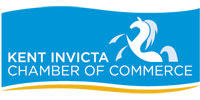When you move into your new office, there's a lot to think about before you're ready to start day-to-day work. This checklist tells you what you need to consider
- Check any legal constraints: for example, does the lease restrict your use of the space or do you require planning permission for alterations to the premises.
- Make sure the space meets minimum requirements in terms of space, heat, light, toilets, washing and rest facilities.
- Identify your furniture requirements: for example, employees’ desks and chairs, storage (eg filing cabinets) and seating for visitors if necessary. Can you minimise your requirements by utilising 'hot desking'?
- Draw up a list of your IT requirements, including computers, printers, other peripherals (eg servers) and networking.
- Establish your communication requirements, including broadband, phone lines, Wi-Fi and internet access points.
- Consider whether other services (eg photocopying and conferencing facilities) can be handled by your computer system, apps, outsourcing or whether you need dedicated equipment.
- Consider health and safety requirements: for example, adequate lighting and ventilation, exit routes and lighting, fire precautions and so on.
- Consider requirements under the Equality Act to remove physical barriers to access for those with disabilities.
- Consider any security requirements: for example, an alarm system or additional locks on windows and doors.
- Plan the office layout; site employees who work together near each other and any equipment they frequently use.
- Explain your plans to employees; ask for feedback and suggestions.
- Install any additional infrastructure: for example, power and lighting circuits, and computer network cabling. Consider whether Wi-Fi can reduce the need for cabling to connect devices.
- Arrange decoration which creates a pleasant working environment; consider the impression which will be made on any visitors.
- Purchase any furniture or equipment you do not already have; consider financing options such as leasing.
- Organise stationery (eg letterhead, compliments slips and business cards); ensure that the letterhead includes all legally required information.
- Order other basic office supplies.
- Ensure that you have all the necessary insurance policies in place before moving in.
- Inform customers, suppliers and other key contacts of your new address. Update your website and social media profiles with your new contact details.
